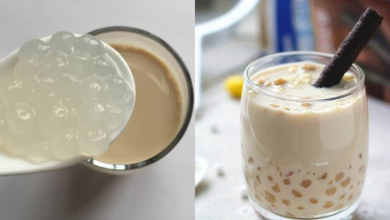The knowledge of milk is widespread

Milk, an important part of the human diet, is also a liquid gold full of nutrients. From infants to the elderly, regardless of age, people can enjoy the nutrition brought by milk. Not only is it a major ingredient in many delicious drinks and foods, it is also one of the cornerstones of healthy living. Throughout history, milk has played an important role in shaping human food culture and health awareness.
The origin and history of milk
Milk as part of the human diet dates back thousands of years to prehistoric times. At first, humans lived primarily as gatherers and hunters, but gradually domesticated animals, including cattle. Cattle were first domesticated for beef and hides, but as time went on, people began to realize the potential of milk. According to archaeological evidence, ancient humans were already drinking milk as early as 6000 BC.
In ancient civilizations, milk was considered a valuable source of nutrients, especially during times when no other source of nutrients was available, such as in desert areas or during cold winter months. Ancient humans developed various methods to preserve milk, such as fermentation to make yogurt or cheese, to extend its shelf life. These traditional methods are still widely used in some areas today.
The nutritional value of milk
Milk is a nutrient-rich food, rich in protein, fat, vitamins and minerals. One of the most well-known nutrients is calcium, which is essential for healthy bones. In addition, milk also contains vitamin D, which helps promote the absorption and utilization of calcium. Protein is necessary for the body to develop and repair tissues, while the fat in milk provides energy and fat-soluble vitamins. Therefore, milk is widely regarded as a complete food that can meet the various nutritional needs of the human body.
Milk and health
In addition to providing a wealth of nutritional value, milk is associated with multiple health benefits. First, milk helps maintain healthy bones. Calcium and vitamin D are key nutrients for bone health, and milk happens to contain both. Long-term milk consumption may reduce the risk of osteoporosis and other bone-related diseases.
Secondly, milk also helps to control weight. Although milk contains fat, studies have shown that drinking low-fat milk is strongly associated with maintaining a healthy weight. This is because the protein and other nutrients in milk can increase satiety and reduce the desire to consume other high-calorie foods.
Milk has also been linked to cardiovascular health. Moderate milk consumption can reduce the risk of high blood pressure and cardiovascular disease. The fat and protein in it can help control cholesterol levels, thereby protecting heart health.
The place of milk in different cultures
Milk plays an important role in food cultures around the world. In some regions, such as Europe and North America, milk is often used to make cheese, butter and other dairy products, becoming an important part of the local diet. In regions such as Asia and Africa, people are more likely to drink traditional drinks such as yogurt or milk tea. Either way, milk plays a role in nourishing the human body and promoting health.
Future outlook
With the continuous development of science and technology, the milk industry is also constantly innovating. For example, the dairy industry is exploring various alternative products, such as plant-based milk and soy milk, to meet the needs of different populations. At the same time, the production process of dairy products is also paying more and more attention to sustainability and environmental protection in order to reduce the negative impact on the environment.
Is milk cold?
First of all, it needs to be clear that milk is not a cold food, it is between cold and hot, it is a flat food, it can be said that the nature is relatively mild, most people drink milk without any problems. It can enter the heart channel, lung channel and stomach channel, can replenish the deficiency and damage and spleen and stomach, and can produce fluid and moisten the intestine, can improve the body weak, chronic illness, insufficient qi and blood or malnutrition and other diseases. However, it is best to drink milk while it is hot, do not drink ice milk, otherwise it may cause gastrointestinal discomfort.
In the future, milk will continue to exist as an important nutritional food and make greater contributions to human health and food culture in the continuous evolution and innovation.




